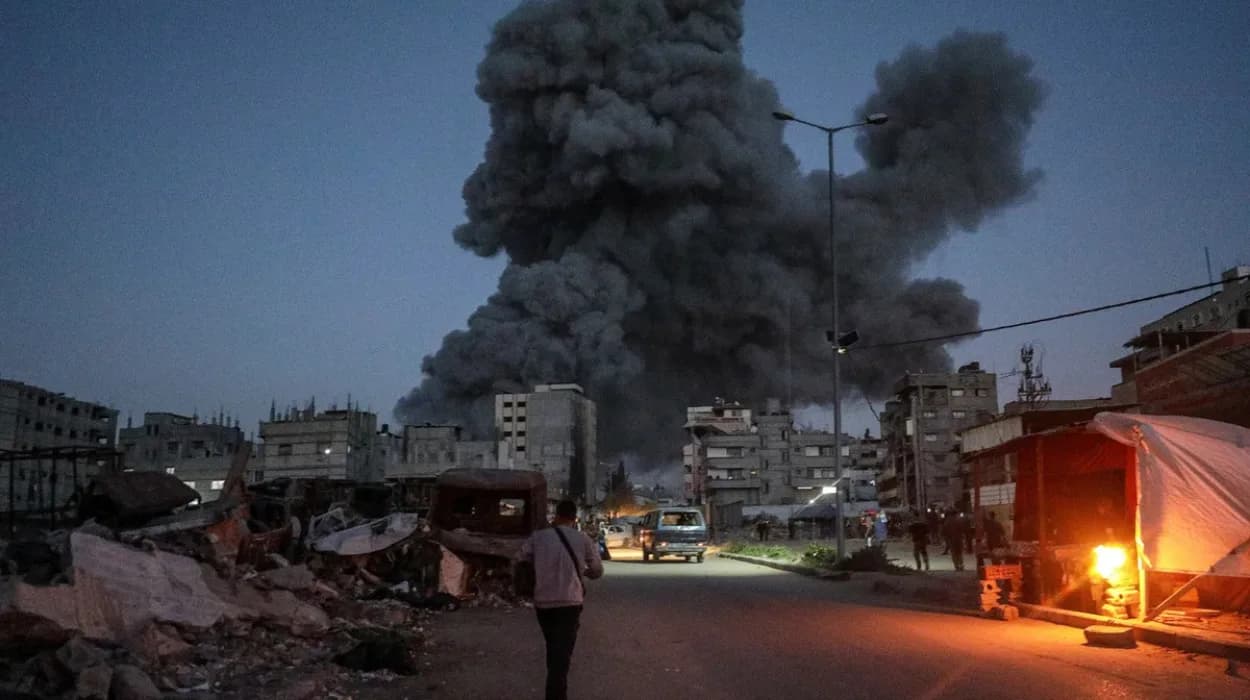Israeli military operations in Gaza City have forced
thousands of Palestinians to flee their homes amid intense bombardment, with
reports of significant civilian casualties and a worsening humanitarian crisis.
Despite Israeli calls for evacuation, many residents remain trapped in
devastated districts, as international bodies and local officials warn of the
severe impact and potential war crimes.
Israeli advances and bombardment force displacement
As reported by Nidal al-Mughrabi of Reuters, Israeli forces
have intensified their military offensive in Gaza City since early August, with
tanks and airstrikes targeting districts including Zeitoun, Sabra, Shejaia, and
the eastern part of Sheikh Radwan. The bombardment has destroyed homes and
ignited fires in tent encampments housing displaced Palestinians. Gaza health
authorities confirmed at least 28 people were killed on Thursday, mostly in
Gaza City, with the Israeli military pushing through the city's outer suburbs,
now only miles from the centre.
Residents describe the conflict's toll: Um Nader, a mother of five, told Reuters by text message,
"This time, I am not leaving my house. I want to die here. Tens of thousands who left their homes were killed by Israel too, so why bother?"
This defiance underscores the desperation
and despair felt by many Gazans amid repeated displacements and heavy
bombardment.
The Israeli military states its operations on the outskirts
of Gaza City aim to dismantle militant tunnels and locate weapons, although
roughly one million residents once lived in Gaza City before the war started.
Hundreds of thousands had returned after initial evacuations in late 2023 and
early 2025, only to face renewed offensives.
Humanitarian impact and international response
Amjad al-Shawa, head of the Palestinian NGOs Network, described the current displacement as
"the most dangerous since the war started,"
warning that malnourished and vulnerable children face grave
risks. The UN and Palestinian officials have noted that no safe zones exist in
Gaza, including those designated by Israel as humanitarian areas, compounding
the crisis.
Al Jazeera's Hani Mahmoud reported from Gaza City that
entire neighbourhoods are being obliterated block by block, calling the
situation "catastrophic" and akin to a "waking nightmare"
for residents losing homes and livelihoods that took generations to build. The
Gaza Health Ministry highlighted that 367 Palestinians, including 131 children,
have died from hunger and malnutrition exacerbated by the ongoing Israeli blockade
limiting food and aid supplies.
The United Nations has cautioned that the forced relocation
of hundreds of thousands to the southern Gaza Strip is a "recipe for
further disaster" and may constitute forcible transfer, potentially a war
crime under international law. Humanitarian sites in the south are overcrowded
and hazardous, with hospitals overwhelmed by casualties.
Israeli political and military context
Prime Minister Benjamin Netanyahu has framed the Gaza City offensive as the
"decisive blow against Hamas,"
characterising it as
a crucial operation to defeat militants and secure the release of hostages held
in Gaza. Approximately 48 hostages remain captive, with 20 believed alive.
Inside Israel, tensions have surfaced over military
strategy, with nationwide protests arising in response to the call-up of 60,000
reservists. These protests express fears that the offensive could endanger
hostages and escalate the conflict further.
Palestinian resistance and tragic loss
Despite Israel's evacuation warnings, many Palestinians remain in Gaza City, unable or unwilling to leave due to the absence of safe refuge or the prohibitive cost and difficulty of moving. The displaced who did flee south or relocated within Gaza City now live in precarious tent camps that are also targeted by the Israeli bombardment. Sabreen al-Mabhuh, displaced and speaking to Al Jazeera, lamented,
"My brother was killed in his room. They murdered him along his wife and children; erased them. There is no one left".
Zakeya Sami, a resident of Sheikh Radwan, described the devastation:
"Sheikh Radwan is being devastated. If the assault on Gaza City is not halted, we may perish. We will not forgive those who observe this and remain inactive".
Regional and international diplomatic repercussions
The humanitarian crisis and military actions have prompted
strong reactions internationally. Mandla Mandela, grandson of Nelson Mandela,
has equated Palestinians' suffering under Israeli occupation to an apartheid
worse than that experienced by Black South Africans, urging global solidarity.
The United Arab Emirates has strongly warned that any
Israeli attempt to annex parts of the occupied West Bank would cross a
"red line," threatening the Abraham Accords and regional integration
efforts. Lana Nusseibeh, UAE assistant minister for political affairs, stated
annexation would severely undermine peace initiatives.
Doctors Without Borders (Médecins Sans Frontières) on
September 4, 2025, warned of mass forced displacement in the West Bank,
labelling Israeli policies as breaches of international law and warning of
rising ethnic cleansing risks.
The relentless toll of war
Since October 7, 2023, when Hamas militants attacked
southern Israel killing approximately 1,200 civilians and taking hostages, the
ensuing Israeli military response has resulted in catastrophic casualties.
Local health officials report more than 63,000 Palestinians have died, mostly
civilians, amid widespread destruction.
The cycle of violence continues unabated, with prospects for ceasefire dimming as humanitarian conditions worsen and militant resistance persists. UN officials report over 82,000 new displacements in Gaza in August 2025 alone, compounding the suffering of a population enduring repeated upheavals.
